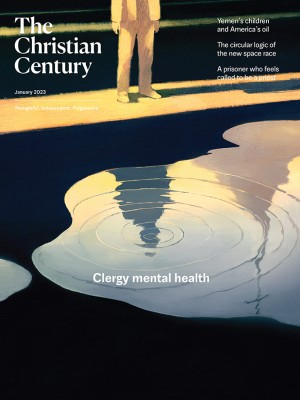Kénosis [Κένοση]
—έαυτον εκέωωσεν
Even now, as prelude to
—as preparation
for—what is yet to come,
the pilgrim must descend
beneath the din and clatter
of the mind, beneath
the heart’s, even the heart’s,
manifold distractions
unto that stillness dwelling
solely in the nous.
Read our latest issue or browse back issues.
It’s a little dark, and yes,
not just a little
bleak. Within that dim arena
one also meets
a measure of despair.
Here, this ache, familiar,
attains a strange and
a curious agency,
as if the ache itself becomes
the tool by which
that hollow might obtain
a nascent hallowing.
Many years ago, I chanced
upon the ruins
of Phílippi, accompanied
by George Kaltsás
who led me to that void
of marbled rubble. We
spoke quietly, or not at all
as we wended,
as we wound amid
discrete lacunae, amid
debris, the fallen
artifacts of erstwhile lives.
The effect was efficacious
producing in the gut
an answering emptiness,
and surprising calm.
George was two years past
what had been a terminal
diagnosis, a fate to which
he had responded
with a swim of more
than twenty miles, Kavala
Beach to Thasos, which
he found to be profoundly
emptying of mind,
of heart, of every ounce
of energy. Thus emptied,
he lay still upon
the Thasos shore for days
as his dire emptying
continued, and he sank
beneath all consciousness,
himself. Today, he walks
with me within the ancient
ruins, and so today
he shares with me a glimpse
of what a dread despair
can serve, facilitate
for one whose solitude
opens to an answering
solitude. The God,
he says, remains quite hidden,
but he has had a taste
of how his own erasure
came to offer . . . what?
Comfort? Consolation? No,
it proved more than that,
more a deep tremor of sudden
expectation, the trembling
thrill of a fullness
drawing near, meeting
one’s own becoming emptiness.
—for George Kaltsás






